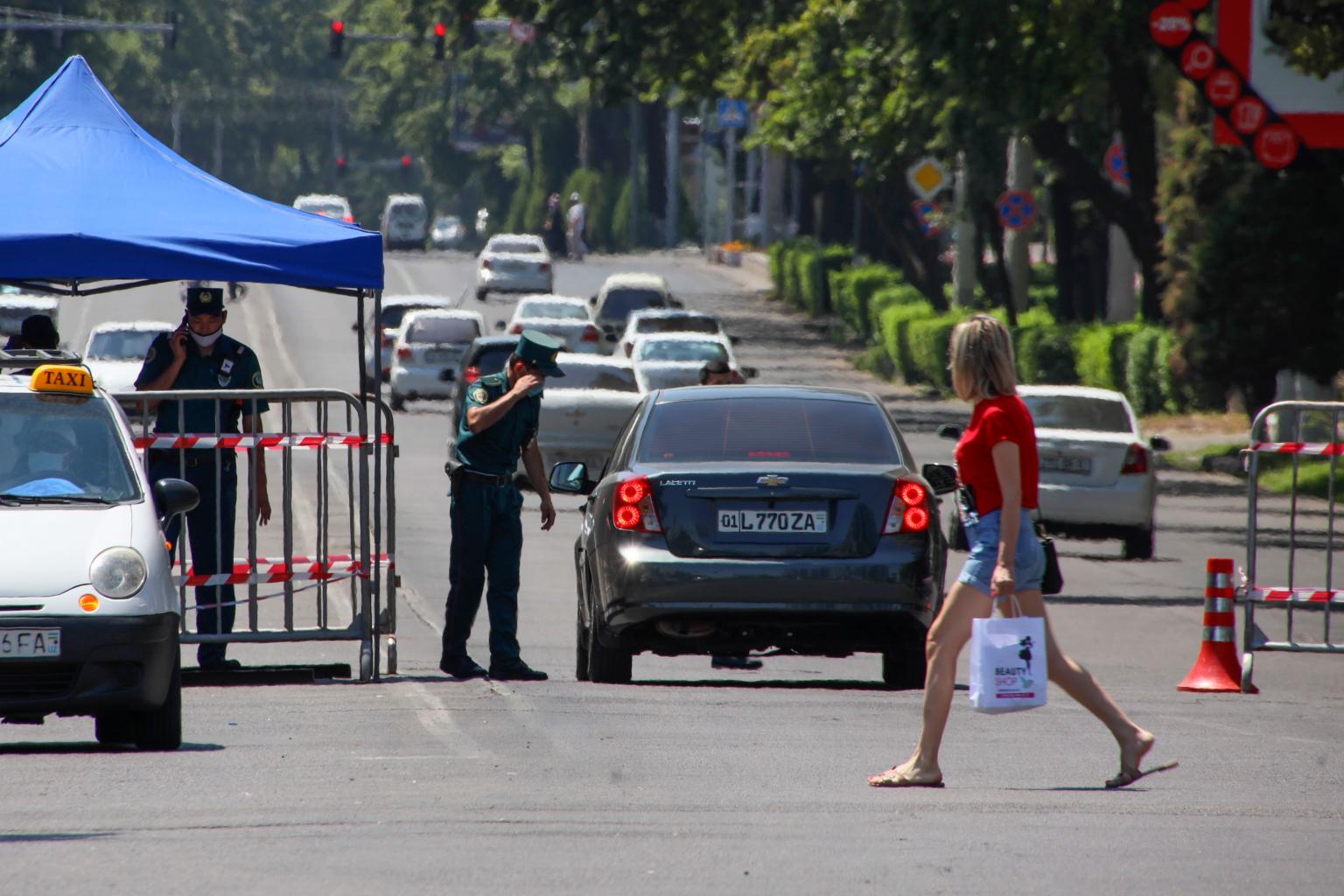Coronavirus pandemic
WHO urges stronger measures as flare-ups spark new closures
It says Italy, Spain, S. Korea and India's biggest slum show it is possible to stop virus spread
Sign up now: Get ST's newsletters delivered to your inbox

In Uzbekistan, citizens were from July 10 facing lockdown restrictions again that were originally imposed in March.
PHOTO: AFP
Follow topic:
GENEVA • The World Health Organisation has urged countries grappling with the coronavirus to step up control measures, saying it is still possible to rein in the deadly disease, as some nations impose fresh restrictions on citizens.
With case numbers worldwide more than doubling in the past six weeks, Uzbekistan on Friday returned to lockdown and Hong Kong said schools would close from tomorrow after the city recorded "exponential growth" in locally transmitted infections.
WHO chief Tedros Adhanom Ghebreyesus called on countries to adopt an aggressive approach, highlighting Italy, Spain, South Korea and India's biggest slum to show it was possible to stop the spread, no matter how bad the outbreak.
The health agency's comments came as United States President Donald Trump was forced to cancel an election rally in New Hampshire, citing an approaching storm.
Mr Trump has pushed to hold large gatherings even as epidemiologists warn of the dangers posed by the virus moving through the air in crowded and confined spaces.
On a visit to Florida on Friday, Mr Trump hit out at Beijing over the pandemic: "(China) could have stopped the plague... They didn't stop it."
The virus has killed more than 563,000 people worldwide since it emerged in China late last year. Over 12.6 million cases have been recorded around the world.
The United States, the country worst hit by the illness, reported more than 69,000 new cases on Friday. Brazil, the second-hardest hit, topped 70,000 deaths and registered 45,000 new infections.
In Uzbekistan, citizens were from Friday facing lockdown restrictions again that were originally imposed in March but lifted gradually over the past two months.
The Central Asian country's return to confinement followed a decision by Australia to lock down its second-biggest city Melbourne from Thursday.
A police officer manning a checkpoint on the outskirts of the former Soviet republic's capital said only drivers with "a good reason" to enter Tashkent - such as delivering food or vital supplies - could pass.
Restaurants, gyms, swimming pools and non-food markets have all shut until at least Aug 1.
Private transport within cities will be limited to morning and early evening journeys and essential purposes such as travelling to work and buying food or medicine.
In Hong Kong, the spike marks a setback for the city after daily life had largely returned to normal with restaurants and bars resuming regular business and cultural attractions reopening.
Despite being right next to mainland China where the virus first emerged, the city had managed to quash local transmission. But new clusters have started to emerge since Tuesday, including at an elderly care home that reported at least 32 cases and a housing estate with 11.
"Across all walks of life, we are all being tested to the limit," WHO's Dr Tedros told a virtual news conference in Geneva.
"From countries where there is exponential growth to places that are loosening restrictions and now starting to see cases rise... Only aggressive action combined with national unity and global solidarity can turn this pandemic around.''
Elsewhere, French officials warned of rising cases in metropolitan France as the death toll topped 30,000.
In Israel, Prime Minister Benjamin Netanyahu admitted a decision to allow businesses, including bars and event spaces, to reopen may have been made "too soon".
The Middle Eastern country recorded its highest number of infections over a 24-hour period, at nearly 1,500.
In Australia, the authorities have said they would slash by half the number of people allowed to return from overseas. From today, only 4,000 Australian citizens or permanent residents will be permitted to enter each day.
Dr Michael Ryan, head of WHO's emergencies programme, warned on Friday that healthcare systems worldwide needed to upgrade to control disease transmission and cope with the large numbers of sick people during this pandemic as well as future outbreaks.
Dr Ryan, speaking during a video panel session organised by the International Aids Society, said world leaders grappling with the current pandemic "need to take a leaf out of the HIV/Aids activist book" and make sure access to healthcare is equitable and evidence-based.
The coronavirus pandemic, which has not yet peaked in many parts of the world, has exposed weaknesses and left billions of people without reliable and affordable access to essential health services, he said.
The human immunodeficiency virus (HIV), the virus that causes Aids, was often a fatal infection when it emerged in the 1980s, but is today considered manageable with anti-retroviral drugs.
There is no vaccine to protect against HIV, which is highly variable and cannot be eliminated by the body's own immune response.
However, researchers do expect to eventually have vaccines effective against the coronavirus, which people can recover from on their own.
Dr Ryan said the two viruses are "different in scope and nature, but are comparable in so many other ways", exposing the same inequities and generating similar injustices and denial.
"We cannot become distracted with retrospection and fingerpointing... We need to look ahead," he said.
AGENCE FRANCE-PRESSE, REUTERS

